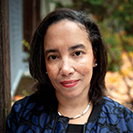Dear SRCD Members:
The academic communities in Florida, Virginia, and Texas are experiencing unprecedented scrutiny of diversity, equity, and inclusion (DEI) programs in state university systems. The recently introduced legislation in Florida (HB 999) is particularly alarming as it would ban whole fields of study. Many of our members sit in critical positions that advance equitable research and advise their universities on equitable practices and proper representation.
Historically, the developmental sciences have predominantly reflected privileged White Western cultures and experiences. However, developmental science is finally evolving to understand both normative developmental processes of people from diverse backgrounds, along with the intersectional experiences, and marginalization among diverse populations. This research is essential to the future of our field. SRCD condemns the banning of DEI instruction and majors. Policies that ban or diminish the study or reflection of diversity, equity, and inclusion run counter to the prevailing science, the direction of the scientific enterprise, and our mission and strategic goals at SRCD. Our mission is to advance the developmental science and promote the use of developmental research to improve human lives and one of our primary strategic aims is to “Integrate racial, cultural, economic, national and contextual diversity in all spheres of developmental science.”
Our committees, task forces, and caucuses provide essential strategic advice to the Society on these issues. Such restrictive policies will significantly hamper our progress. The ways in which SRCD advances our mission and strategic goals pertaining to diversity equity and inclusion are seen clearly across our journals and through our conferences.
Reflective of our commitment to a diverse and fully representative developmental science, SRCD’s Special Topic Meeting “Construction of the ‘Other’: Development, Consequences, and Applied Implications of Racism, Prejudice, and Discrimination” was held in Puerto Rico in 2022. In the context of increasing overt racism, marginalization, and profiling in our societies, this conference highlighted our growing interdisciplinary understanding of how prejudice and discrimination are socialized, manifested, and perpetuated and the means and mechanisms children, youth, and families engage in to protect themselves from the negative sequalae of being “othered.”
Further, SRCD’s Special Topic Meeting “Toward a Holistic Developmental Science: Catalyzing Transdisciplinary, Multisector Collaborations to Understand and Support Human Development” (#HolisticDevScience), held in St. Louis in 2022, emphasized the need for developmental science to reflect the diversity of the human experience and be understood among the diverse communities in which children, youth, and families reside. For the developmental sciences to embrace the diversity of normative development more fully, the field needs research that is informed by the communities, practitioners, and policy makers and individuals.
Finally, for our upcoming Biennial Meeting in Salt Lake City research, research focused on antiracism or interventions, Indigenous children and families, the impact of displacement due to involuntary and forced migration, and environmental justice are featured. This conceptual and empirical research increases our understanding of human development in diverse contexts and the impacts of inequalities and marginalization.
To this end, SRCD has signed on to the ACLS letter that underscores the importance of academic freedom and will continue to lend our voice to coalitions addressing this issue. We encourage members to reach out to their state and local representatives with the following resources to advocate for the necessity of DEI programs in higher education and demand the removal of any bans on DEI instruction.
Resources:
American Association of University Professors
- Educational Gag Orders: Legislative Interference in Teaching About Race and Toolkit of Resources
- Advancing Academic Freedom
Scholars Strategy Network Resources
Nancy E. Hill, Ph.D.
SRCD President
